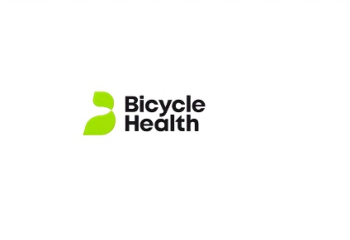More About Rehabs Accepting Kaiser Permanente
More About Rehabs Accepting Kaiser Permanente
Kaiser Permanente is one of the largest health insurance providers in the United States, and many drug and alcohol rehab centers accept Kaiser Permanente insurance. However, it can be difficult to know which centers are the best fit for your specific needs.
We will provide a comprehensive guide to rehabilitation centers that accept Kaiser Permanente insurance, including information on the types of treatment offered, and amenities.
About Kaiser Permanente
Kaiser Permanente was founded in Oakland, California in 1945 and is a not-for-profit healthcare provider and health insurer. They operate clinics and hospitals, helping patients and their members connect to quality care at an affordable cost. They serve over 12.5 million members, making them one of the largest providers in America.
Kaiser Permanente offers a range of insurance products and Medicare Advantage Plans to people across the United States.
Kaiser Permanente Plan Options
Kaiser Permanente, like most health insurance companies, offers coverage for substance abuse treatment . This can include inpatient and outpatient treatment, counseling, and medication-assisted treatment.
The specific details of Kaiser Permanente's substance abuse coverage will depend on the specific plan you have. You can contact Kaiser Permanente directly or look at your plan's coverage details online to learn more about what substance abuse services it covers.
Kaiser Permanente additionally offers supplemental and limited-duration insurance plans.
- Bronze plans—These plans have lower premiums but have the highest deductibles, which will result in higher out-of-pocket expenses. Kaiser Permanente covers about 60% of the cost of care services after the deductible is met.
- Silver plans—These plans cost more in premiums but have lower deductibles and lower out-of-pocket expenses than bronze plans. Kaiser Permanente pays about 70% of the cost of care services after the deductible is met.
- Gold plans—These plans have higher premiums but the lowest deductibles and will have the lowest out-of-pocket expenses. Kaiser Permanente pays about 80% of the cost of care after the deductible is met.
- Platinum plans—Highest premiums but the lowest deductibles; Kaiser Permanente pays about 90% of costs once you meet your deductible.
Kaiser Permanente, Medicare and Medicaid
Kaiser Permanente Medicare plans are alternatives to Medi-Cal and Original Medicare, which is the federal health insurance program for people who are 65 or older, as well as people with certain disabilities. Kaiser Permanente Medicare Advantage plans provide the same benefits as Original Medicare, but often with additional benefits, such as vision, hearing, and dental coverage.
Kaiser Permanente Medicaid plans are offered in some states to individuals who are eligible for Medicaid, which is a joint federal and state program that provides health coverage to people with low incomes. Kaiser Permanente Medicaid plans typically cover a range of health services, including preventive care, doctor visits, hospital stays, and prescription drugs.
The specifics of what is covered by Kaiser Permanente Medicare and Medicaid plans will vary depending on the plan you have and the state you live in. To find out more about what is covered by Kaiser Permanente's Medicare and Medicaid plans, you can look at your plan's coverage details or contact Kaiser Permanente directly.
Addiction Treatment Options
Kaiser Permanente for Medical Detox
Kaiser Permanente typically covers medically-supervised detox programs, which involve the use of medication and other treatments to help people manage the physical and emotional symptoms of withdrawal from drugs or alcohol. In some cases, Kaiser Permanente may also cover the cost of inpatient or residential detox programs, which provide a more intensive level of care and support.
Kaiser Permanente and Medically-Assisted Treatment
MAT is a form of rehab that combines medication with therapy to help those recovering from addiction. Kaiser Permanente insurance covers many forms of MAT, including methadone and buprenorphine.
Kaiser Permanente Coverage for Residential Treatment
Inpatient treatment is the most intensive form of rehab , and it typically involves staying at the center for several weeks or months. Inpatient treatment is ideal for those with severe addiction or mental health issues. Your Kaiser Permanente insurance plan may cover a significant portion of treatment costs; check with an Kaiser Permanente representative to see how much.
Start Your Recovery Today
Treatment is possible, and often more affordable than you think. Many insurance plans cover mental health and addiction care, and even if yours doesn’t, other options exist. Use Recovery.com to explore and compare top-rated treatment centers and take the first step toward healing today.


























































































